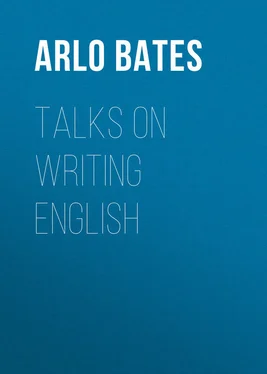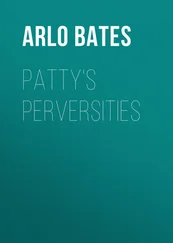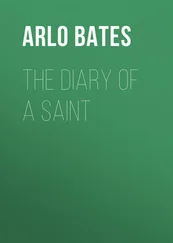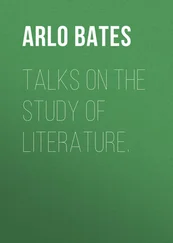Arlo Bates - Talks on Writing English
Здесь есть возможность читать онлайн «Arlo Bates - Talks on Writing English» — ознакомительный отрывок электронной книги совершенно бесплатно, а после прочтения отрывка купить полную версию. В некоторых случаях можно слушать аудио, скачать через торрент в формате fb2 и присутствует краткое содержание. Жанр: foreign_antique, foreign_prose, на английском языке. Описание произведения, (предисловие) а так же отзывы посетителей доступны на портале библиотеки ЛибКат.
- Название:Talks on Writing English
- Автор:
- Жанр:
- Год:неизвестен
- ISBN:нет данных
- Рейтинг книги:5 / 5. Голосов: 1
-
Избранное:Добавить в избранное
- Отзывы:
-
Ваша оценка:
- 100
- 1
- 2
- 3
- 4
- 5
Talks on Writing English: краткое содержание, описание и аннотация
Предлагаем к чтению аннотацию, описание, краткое содержание или предисловие (зависит от того, что написал сам автор книги «Talks on Writing English»). Если вы не нашли необходимую информацию о книге — напишите в комментариях, мы постараемся отыскать её.
Talks on Writing English — читать онлайн ознакомительный отрывок
Ниже представлен текст книги, разбитый по страницам. Система сохранения места последней прочитанной страницы, позволяет с удобством читать онлайн бесплатно книгу «Talks on Writing English», без необходимости каждый раз заново искать на чём Вы остановились. Поставьте закладку, и сможете в любой момент перейти на страницу, на которой закончили чтение.
Интервал:
Закладка:
The thing which the writer has caused the reader to think – or even to suppose himself to think – is sure to interest him. The dullest of bores is absorbed in his own words, and in effect that which the reader receives by suggestion is his own thought. What is denoted is the word of the writer; what is connoted is for the time being the thought of the reader.
It is not difficult to see that Clearness is an aid to Force; or, to put it more exactly, that a lack of Clearness will interfere with Force. Yet the one is by no means essential to the other. The diction of “The Ordeal of Richard Feverel,” that book so strong that it wrings the heart almost like a fierce personal sorrow, is in passages so obscure as to have given rise to the rather cheap mot that the novel would be successful if it were translated into English. Almost any page of Carlyle might also be cited in illustration; while that Clearness may fail to secure Force is proved by the pellucidly stupid lucubrations of an innumerable company of authors whom nobody could fail to understand if it were possible to keep awake to read them.
Connotation may be the result of various causes. It may be produced by a swiftness and briskness of motion which so awakens and quickens the mind that the reader is aroused to thought, and seizes each idea presented as if he had himself originated it. It is this sort of force that we mean when we speak of the vivacity or the brilliancy of a work. The secret lies chiefly in passing quickly from one significant point to another. This involves, it is apparent, the power of selecting the significant, and of bringing this out while avoiding the unessential.
The effectiveness of the sensational story depends largely upon a quality closely allied to this, although here it is a matter not so much of style as of material. The tale which moves rapidly from situation to situation, so that the reader seems to share the adventures of the characters, often owes as much to the swiftness of its progress as to the nature of the story told. It owes more, as a general thing, to the vividness with which the exciting situations are imagined and presented. The more real a thing seems to the reader, the more suggestive it must be to him, and the more likely is he to share the sensations set down, so that for the moment it seems as if he were actually experiencing them. In other words, the more real the narrative, the more suggestive it becomes.
One great means of producing this sense of reality either in narrative or in any other kind of composition, whether in the setting forth of thoughts, or in the telling of events, is in making what is written specific. The specific term is apt to be more suggestive than the general from the fact that it presents to the mind an idea which can be grasped readily. When one reads that the Indians are on the war-path and are ravaging the country, one has a vague feeling of horror; but if one is told that the Red Men have crossed the bounds of Big Lick Reservation, have murdered and scalped a settler named John Thing, have burned his cabin, and carried off his wife and children, there is no vagueness about it. The impression becomes at once vivid and forceful in what it denotes, and stirring in what it connotes.
It is from a misapplication of this fact that modern fiction has fallen into that vice which has been known as Realism – perhaps because it is less real than any other sort of fiction ever devised. It is apparently by a perception of the effectiveness of the specific, that Realists have been led into the error of believing in the effectiveness of the minute.
Before leaving the quality under discussion it is well to say a word about what is called “reserved force.” Our respect for a writer is always increased by feeling that he might do more than he is doing. We are led on by a desire to see what greater things he will accomplish. The feeling in reading an author who is evidently doing his utmost is not unlike that felt in crossing a bridge which shakes with the footfall. It may carry us over the stream, but on the other hand it may break under us. I once heard a lady explain her dislike for a certain youth by saying: “I never could endure a man who is always doing his darnedest!” The expression is unhappily vulgar, but it does seem to me to be humanly expressive. We do not like to feel that we have come to the end of the resources of a friend or of an author.
How then does a writer produce an impression of reserved force? The phrase meets one in book reviews, and to inexperienced writers is apt to convey little but bewilderment. One way in which the finished literary craftsman secures the impression of reserved power is by deliberately making the minor parts of his work weaker than those more important. In other words, he gains the effect of reserved strength by reserving strength. Often it is well in the revision of a composition to lessen the stress of expression in unimportant passages; to soften down, as it were, all portions except the high lights. The natural tendency of every earnest writer is to express himself as vigorously as possible, and in the first draft this is well, – provided always that he has the self-control and the skill so to modify in revision the less important parts that the emphasis shall be properly proportioned. Shading in literature is a matter which it is not easy to explain without examples much longer than it is possible to use here. It must be learned by the study of masterpieces. It is well to keep in mind, however, that it is oftener the result of a clever softening of minor passages than of a heavier emphasis upon important portions; and above all that the secret of shading and of reserved force as well is proportion. It is rather comparative than absolute stress which is effective. Vehemence is not vigor. Make up your mind clearly what points you wish to bring out most sharply; that is half of the process: then see to it that the remaining parts of the composition are kept subordinate to these; that is the rest of it.
Конец ознакомительного фрагмента.
Текст предоставлен ООО «ЛитРес».
Прочитайте эту книгу целиком, купив полную легальную версию на ЛитРес.
Безопасно оплатить книгу можно банковской картой Visa, MasterCard, Maestro, со счета мобильного телефона, с платежного терминала, в салоне МТС или Связной, через PayPal, WebMoney, Яндекс.Деньги, QIWI Кошелек, бонусными картами или другим удобным Вам способом.
1
In this chapter and the next three I am so greatly indebted to Professor Barrett Wendell’s “English Composition” that this part of my book might almost be called a summary of his, although I have of course omitted much and have introduced some things upon which he has barely touched.
2
Disraeli: Lothair . Quoted by Professor Hill.
Интервал:
Закладка:
Похожие книги на «Talks on Writing English»
Представляем Вашему вниманию похожие книги на «Talks on Writing English» списком для выбора. Мы отобрали схожую по названию и смыслу литературу в надежде предоставить читателям больше вариантов отыскать новые, интересные, ещё непрочитанные произведения.
Обсуждение, отзывы о книге «Talks on Writing English» и просто собственные мнения читателей. Оставьте ваши комментарии, напишите, что Вы думаете о произведении, его смысле или главных героях. Укажите что конкретно понравилось, а что нет, и почему Вы так считаете.












